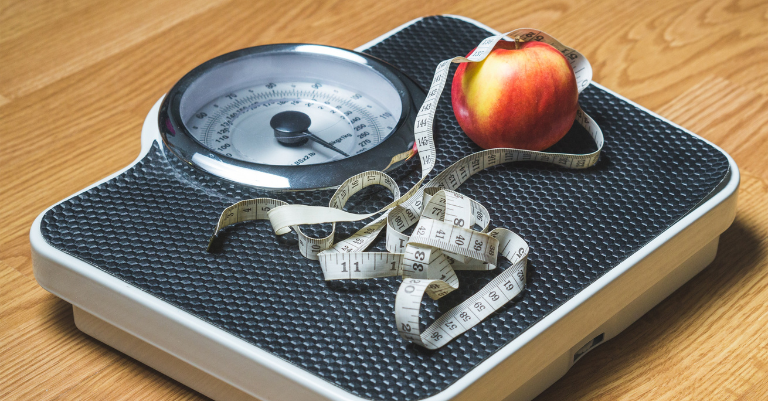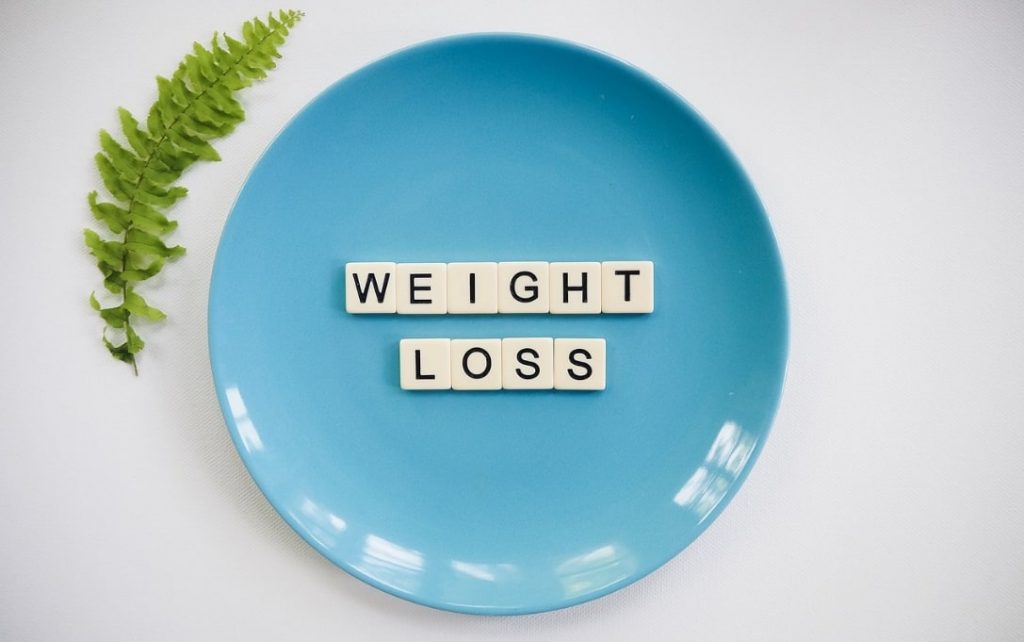
Can you lose weight in 2 weeks? Yes, you can. But the question is, is it risk-free and healthy? There are loads of pros and cons that you should consider before diving into any diet. Losing weight should be your long term goal. You need to be consistent with the process. You can lose a few pounds within two weeks as shedding 1 to 2 pounds in the first week is considered healthy and acceptable. Regardless, you are more likely to lose more than initially if you start as a newbie with exercises and diet regimens.
It is natural to want to lose weight as quickly as possible. However, you should be aware that it is preferable to gradually reduce weight because most studies show that those who lose weight gradually are more likely to keep it off in the long run. Slowing down your weight loss also comes with significantly fewer health threats. Meanwhile, several recent studies have revealed that quick weight loss may be just as effective and safe as steady weight loss.
Changing your behaviour patterns and lifestyle routines can help you achieve your weight loss goals. According to research, people who are attentive or conscious of what they are eating have less cravings and are more successful at exercising portion control, which are two essential components of successful weight management.

How to Lose Weight in Two Weeks
There are numerous approaches to losing weight, but the principle is simple: eat healthier and become more active. Don’t be sucked into fad diets or fitness crazes. Instead, adopt eating habits that are appropriate for your lifestyle and exercises that you enjoy. Here are few tips for you to get ahead with weight loss:
Get Professional Help: Hire experts, such as a personal trainer or a dietician, someone who can assist you in staying accountable and developing individualised exercises and meal plans. If you have a budget issue, YouTube has a plethora of free workouts you can perform from the comfort of your own home.
Count Your Calories: When your body consumes fewer calories than it burns, you lose weight. Reduce your total daily calories by 500 to 1,000 calories per day for a weight reduction pace of one to two pounds per week. The fewer calories you eat, the more weight you will lose. Try to avoid unhealthy snacks in between meals. In between those clean meals, your body will fend for itself and burn off excess fat and stored energy. Reduce your calorie consumption. However, keep in mind that a diet of fewer than 1,000 calories per day will not give adequate nourishment on a daily basis.
Plan Ahead: Equipping a kitchen with diet-friendly items and making regular meal planning will result in more dramatic weight loss. People who want to lose weight or keep it off should purge their kitchen of processed or junk foods and stock up on supplies for quick, healthy meals. This will keep you from eating on the spur of the moment, unplanned, and carelessly. Making meal choices before going to social events or restaurants may help make the procedure easier for you.
Move More: Laziness can be the biggest barrier to your weight loss journey. Walk around the house, get your own stuff instead of asking someone else. Go for a jog in the morning or evening. You can go swimming too. It’s one of the best ways to get your body moving and have a relaxing feel as well.
Avoid Junkies: Processed foods are overall bad for your health. Whether you want to lose weight or not, you should always skip junk foods. Junk snacks are heavy in calories, salt, and carbohydrates, and they rarely fill you up. They are highly processed and nutritionally deficient. Junk food includes candies, baked goods, chips, fries, and desserts. To minimise your calorie and carb consumption, try eating whole, single-ingredient foods.
Eat More Lean Protein: Lean protein promotes muscle development. Lean protein also makes you feel more full after you eat. This enables you to consume fewer calories during meals and, as a result of feeling fuller, you may be able to eliminate some unnecessary carbs, resulting in weight loss.
Food Journal: Self-monitoring is essential for successful weight loss. To record every item of food that you consume each day, you can use a paper diary, a mobile app, or a specialised website. You can also track your improvement by keeping a weekly weight log. Those who can track their progress in tiny steps and recognise physical changes are significantly more likely to stick to a weight loss plan. You can also use a BMI calculator to keep track of your body mass index (BMI).
Focus on Your Drinks: You need to drink more than eight glasses of water according to your height and weight. Drinking more water will also reduce your bloating. Refrain from consuming alcohol or sugar-sweetened beverages. Sugary drinks, both alcoholic and nonalcoholic, contain a lot of hidden calories. You can substitute water, coconut water, or green tea for them. Fresh fruit juice is a better and healthier option for you when it comes to losing weight.
Have Nutritious Food: Instead of counting calories, focus on nutrition. However, remember that fresh, healthy foods are healthier than manufactured “diet” items. Low-calorie food isn’t always good for you! It’s also critical to eat enough food every day so that your body doesn’t mistakenly believe it’s hungry and slows down your metabolism. Focus on a well-balanced diet rich in lean protein, fresh vegetables, whole, unprocessed carbohydrate and fruit sources, and unsaturated fats in small amounts.
HIIT: You can start your high-intensity interval training journey now, as it has a number of advantages. This sort of workout requires you to contribute all of your energy for brief periods of time, with active rest in between to allow you to recuperate. You may run for a minute every three minutes on a walk, then walk for another three minutes to collect your breath. Then go for another minute of running. This not only burns fat and calories, but it also keeps your metabolism going for hours after you stop. This cycle should be done for 20 to 50 minutes to reap the benefits of this training style ultimately. Your body will burn calories during the workout, but it will also burn fat afterwards due to increased oxygen consumption following the exertion.
Get Your Beauty Sleep: No kidding, but getting a total of seven to nine hours of sleep each night can really aid weight loss. When you don’t get enough sleep, your metabolism slows down, and your hunger hormones rise, making you want to eat more.
Exercise: Aim for a combination of exercises. Don’t let cardio become your entire source of exercise. Instead, make sure your workout combines resistance training (either with your own bodyweight or with actual weights), cardio, and plenty of stretching. Working multiple muscle groups keeps your body guessing, and your metabolism revved up, even after you’ve finished your workout. Aim for 30 to 90 minutes of exercise every day, and give your body at least one full day off per week to recover and rest.
Include Healthy Fat: You must become fat-adapted if you want to burn fat, which means your body must switch the primary energy source it uses to drive your activities. Fat becomes the more readily accessible fuel over sugar when you eat healthy fats with every meal and eat fewer carbohydrates. When you eat somewhat more fat at each meal, you will also feel less hungry. Avocado, nuts, fatty fish like salmon, eggs, chia seeds, extra virgin olive oil, cheese, dark chocolate, and full-fat yoghurts are all fatty foods you can include in your fat loss diet.
Try Intermittent Fasting: This strategy is excellent for catching up on digestion and burning calories. It can assist you in teaching your body to burn stored fat for energy. Intermittent fasting can be done by finishing your last meal of the day by 8 p.m. and then fasting until noon the next day. This will allow your body to completely process everything in your digestive tract and rely on stored fat for energy for the next 16 hours. It’s important to realise that everyone’s physique is different. You should evaluate your own energy levels in reaction to this. With practice, it gets easier. Before attempting this sort of fasting, consult your doctor.
Don’t Give Up Hope: Weight loss is a slow process, and you could get disheartened if the pounds don’t come off as quickly as you’d hoped. Some days will be more difficult than others when it comes to sticking to a weight reduction or maintenance programme. When self-change appears to be too difficult, a successful weight-loss programme requires you to endure and not give up. You may need to reset your goals by changing your activity patterns or adjusting the number of calories you want to consume. The most important thing is maintaining a positive attitude and persevering in conquering the obstacles to weight loss achievement.
Don’t starve yourself; it won’t work in your favour. Instead, it will cause severe health risks. The body is put under physical strain when you lose weight rapidly. Rapid weight loss can have negative effects like headaches, irritability, fatigue, dizziness, constipation, irregular menstruation, loss of hair, muscle loss in your body. It can also cause some serious risks, including:
Gallstones can arise in 12% to 25% of people who lose a lot of weight in a short period of time.
Dehydration can also occur, so you need to drink lots of water to avoid it.
Malnutrition can occur when you don’t eat enough protein for weeks at a time.
Electrolyte imbalances can also be fatal due to quick weight loss.
While it is feasible to drop more than a few pounds in one week, most people should not attempt it unless they are under the direct supervision and advice of a doctor. Losing more pounds over a period of several weeks is considerably more achievable than losing it in a single week. People who have difficulty sticking to or following their doctor’s recommendations may still be able to lose weight by making tiny changes to their diet and exercise habits over time.
Even though many people may be motivated by a significant weight loss in a week, it is important to realise that this is not sustainable and can be dangerous. Slight modifications that a person can maintain for a lengthy period of time result in the finest and most successful weight loss.
You can take courses like Weight Loss in 14 Days to attain a better understanding. Accredited courses can be more helpful to you, so get the best out of your weight loss journey.



 " alt="20 Most Demand Mental Health Jobs and Ways to Success (With Salaries and Primary Duties)" />
" alt="20 Most Demand Mental Health Jobs and Ways to Success (With Salaries and Primary Duties)" />
 " alt="A Guide to Preparing for a Job Interview in 2025" />
" alt="A Guide to Preparing for a Job Interview in 2025" />
 " alt="Makeup Artists to Follow This Autumn/Winter 2024" />
" alt="Makeup Artists to Follow This Autumn/Winter 2024" />